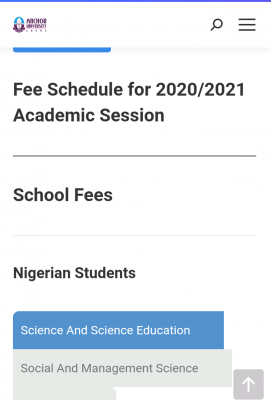
When you graduate from college or high school, it can be hard to find your place in the world. You may have a degree in an area you know nothing about, and there might not be a job in that field waiting for you when you graduate.
If this sounds like you, don’t worry! This blog post is here to teach you how to find your career path after school. First, identify what kind of work environment would best suit your personality and interests. Next, check out some career options that will give you the most flexible scheduling opportunities. Finally, be creative with the skills that are most important to you and write a list of keywords related to those skills. If none of these things align with what you want to do, make a list of alternative ideas and start searching for jobs that match these keywords!
It’s easy to get stuck in a cycle of finding a career that you aren’t passionate about. In order to find your true calling, you need to step outside of the box and open your mind to something new. Here are some ways that might help you find your career path after school:
1) Enlisting Help From Your Family: Even if you’re not sure what your career path will be, this is a great way to get some inspiration from someone who knows you better than anyone else. They can offer insight into what they think will make for a good match with your interests and skills.
2) Taking A Job To Get Experience: If you aren’t sure what type of job would be best suited for you, then taking a job in an industry that interests you may provide valuable experience. It’s also important that the job corresponds with your skill set so that it doesn’t end up being a waste of time.
How To Find Your Career Path After School
If you’re a graduating student or recent graduate, it can be difficult to figure out what your next step is. You’ve done everything your teachers and parents told you to do — studied hard, got good grades, and maybe even won some awards. It’s time to move on from school and begin your career path. The first step is finding a job that you’re passionate about; but with the high demand for STEM (science, technology, engineering, math) workers in any country it can be difficult to find an appropriate job for yourself. Here are some ways to achieve your ideal career.
1. Defining Your Career Path
A career is a series of jobs that you have done at one point or another in your life. Career paths can also be defined by the type of work, industry, or job title someone has. What kinds of things should you consider when figuring out your career path?
- Who are the people you want to work with?
What are your interests and hobbies?
What are you looking for in a new job?
If you had to pick one word to describe yourself, what would it be?
Asking yourself these types of questions will help give you an idea of where your career might go.
2. How to find your perfect job
It can be difficult to find a job that is perfect for you. Here are some of the ways you can find your perfect job.
1) Research potential employers: it’s easier now more than ever to research potential employers. There are many resources available for this, including LinkedIn and company websites. Search for companies that suit what you’re looking for and then contact them — it’s worth a shot!
2) Get involved in community organizations: joining a community organization is a great way to make connections and learn about what’s happening in the career field. Community organizations often have events with speakers or workshops where you can learn more about different career fields and discover what they do require of their employees. You may even be able to get access to internships or volunteer opportunities related to your interests.
3) Find mentors: finding mentors through friends and family members who have careers in a field that interests you or through professional connections is an easy way to figure out if the work sounds like something you would enjoy doing. It also provides valuable insight into different aspects of the job, making it easier to figure out if it’s right for you.
3. Where to find a career that fits you
If you’re looking to find a career that is fulfilling and matches your interests, you should check out jobs on Monster.ca. This site is great because it gives you a wide variety of information about the company in which a job is available; including job openings, salaries, and working conditions. The site also lets you know what other professionals in your area are doing for their career.
Another great website for finding a career that fits you is Job Bank Canada. They offer lots of different careers that are available across the country. You can browse through their site by location or industry to find the perfect job for you.
If you’re still unsure about what type of career to pursue, try looking into internships or volunteer work for your next step in finding your career path after school. Internships are an excellent way to gain experience and build relationships with people who could potentially be valuable contacts later on in your career path. Volunteer work helps develop skills that could potentially lead to paid employment down the line. There are tons of opportunities that require minimal commitment that might help direct you towards your ideal career path after school!
4. Finding the right school for you
If you’re not sure what career path is best for you, you should research the different careers in your field and see which one gives you the most satisfaction. This way, when it comes to pursuing your education, you’ll know what to avoid and what to focus on.
Another option is going back to school and studying something completely new. For example, if you like web design but aren’t sure whether web design is a good career choice for you, why not start with web development? Web development is a more technical version of web design with more emphasis on coding and other programming skills.
A third option is taking a gap year or internship before focusing on a degree. This is a great option if your school doesn’t offer the degree that fulfills your needs after graduation or if college doesn’t provide enough experience before moving on to university. By working during this time period, you will gain valuable work experience and get a feel for different workplace environments. The key here would be finding an internship or gap year that complements your skillset and provides opportunities to grow professionally.
A last option would be doing an apprenticeship program where you can learn from experienced professionals about the job market, resume building, interviewing techniques, etcetera. This type of program would allow you to gain hands-on experience on the job market while receiving professional training from professionals who are already employed in their respective fields.
5. Choosing your college major
Your college major is a huge part of finding your career path. You should choose the college major that you enjoy and will find the most success in. If you’re not sure what to do, try doing some research about the field you are most interested in. People who are passionate about their work tend to be more successful than people who have just been told to do something.
Another thing to keep in mind when choosing your college major is how it will change during your career. If your goal is to become an engineer, you might want to choose a school that doesn’t provide as much liberal arts education and focuses on engineering-related subjects instead.
If you’re unsure of what college major would be best suited for you, try taking courses outside of your usual major and see which ones seem more interesting or engaging to you. These could be courses at a local community college or university or even online courses that you can take part in while still completing your original degree requirements.
6. Choosing your degree program
The first step is to choose your degree program. After you’ve thought about what kind of job you want, it’s time to think about what your degree can do for you. If you’re interested in a career in the STEM field, then studying mathematics, computer science, or engineering will help you get there. If you’re not interested in pursuing a career in the STEM field, then exploring different fields such as business management or marketing might be better options for you.
Once you’ve chosen your degree program and identified your long-term career goal, it’s time to start looking at potential jobs that have been posted on Indeed.com and other job sites like Monster.ca and Job Bank Canada. These websites are great because they allow you to search by location, field of study, education level and more.




